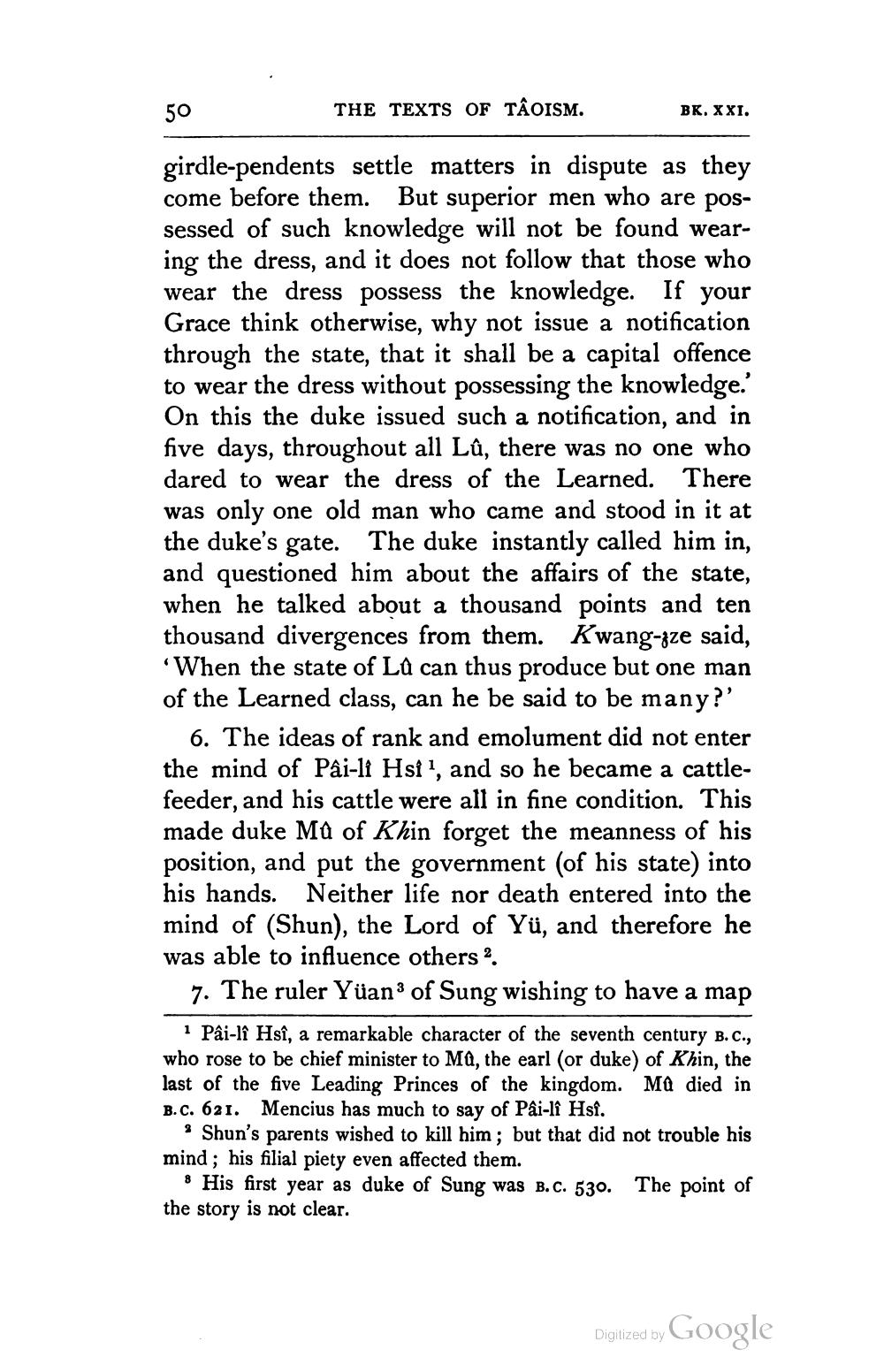________________
50
THE TEXTS OF TÂOISM.
BK, XXI.
girdle-pendents settle matters in dispute as they come before them. But superior men who are possessed of such knowledge will not be found wearing the dress, and it does not follow that those who wear the dress possess the knowledge. If your Grace think otherwise, why not issue a notification through the state, that it shall be a capital offence to wear the dress without possessing the knowledge.' On this the duke issued such a notification, and in five days, throughout all Lû, there was no one who dared to wear the dress of the Learned. There was only one old man who came and stood in it at the duke's gate. The duke instantly called him in, and questioned him about the affairs of the state, when he talked about a thousand points and ten thousand divergences from them. Kwang-gze said,
When the state of Là can thus produce but one man of the Learned class, can he be said to be many?'
6. The ideas of rank and emolument did not enter the mind of Pâi-li Hsi!, and so he became a cattlefeeder, and his cattle were all in fine condition. This made duke Md of Khin forget the meanness of his position, and put the government (of his state) into his hands. Neither life nor death entered into the mind of (Shun), the Lord of Yü, and therefore he was able to influence others 2.
7. The ruler Yüan of Sung wishing to have a map 1 Pâi-li Hsî, a remarkable character of the seventh century B.C., who rose to be chief minister to Md, the earl (or duke) of Khin, the last of the five Leading Princes of the kingdom. Mū died in B.C. 621. Mencius has much to say of Pâi-li Hsi.
Shun's parents wished to kill him ; but that did not trouble his mind; his filial piety even affected them.
& His first year as duke of Sung was B.C. 530. The point of the story is not clear.
Digitized by Google




